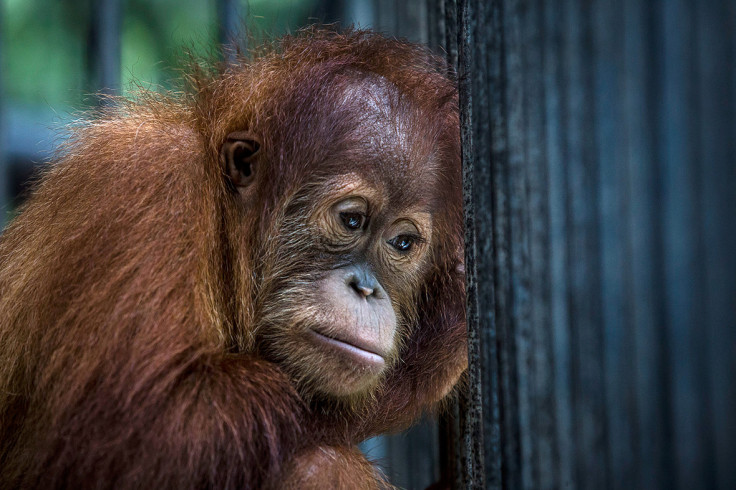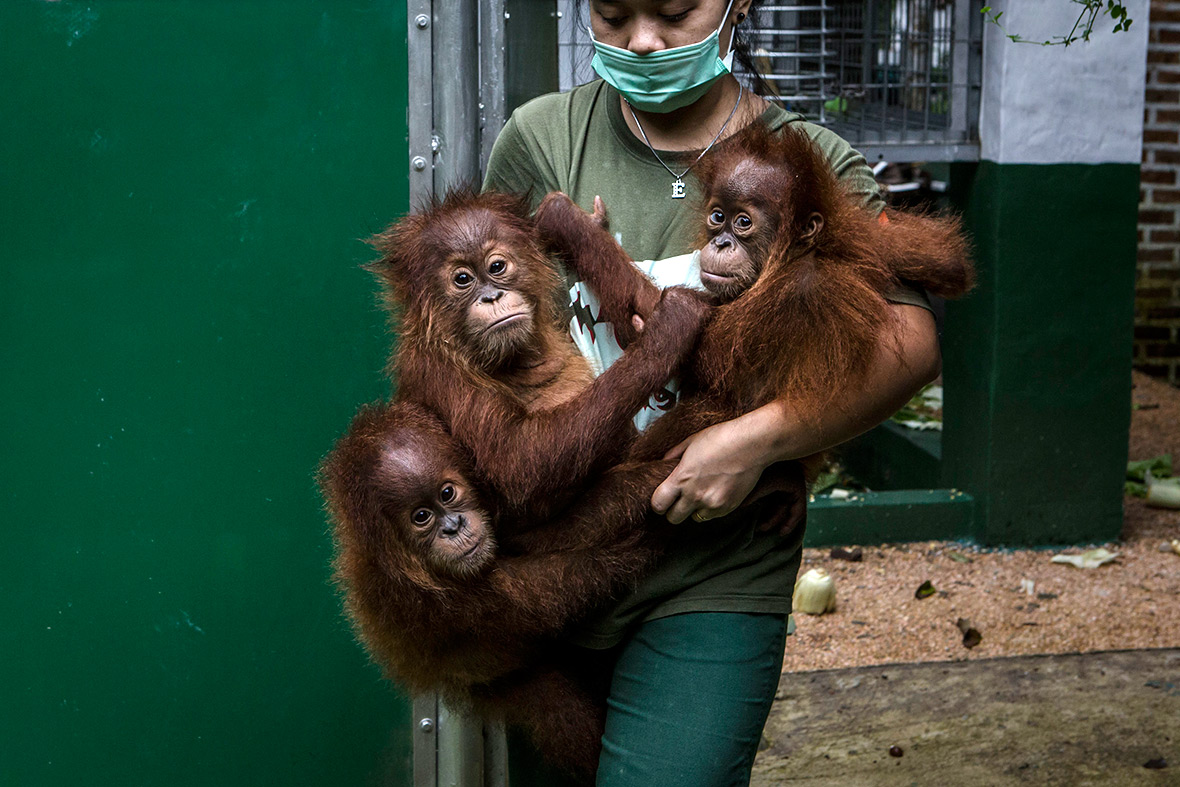Heartbreaking photos of baby orangutans left orphaned by poachers
This week has been designated as Orangutan Caring Week. Find out what you can do to help protect these critically endangered animals.
These heartbreaking photos show young orangutans being cared for at the Sumatran Orangutan Conservation Programme (SOCP) in Indonesia. SOCP rehabilitates orphaned, captive and injured orangutans, aiming to release them back into the wild. Since being established in 1999, more than 220 orangutans have been returned to the forest.

The organisation regularly confiscates baby orangutans, destined for the illegal pet trade, from wildlife traffickers. These suppliers buy the orphaned apes from poachers who shoot their mothers and capture the helpless babies.
Orangutans have the longest childhood of any animal (apart from humans), often staying with their mothers until they are six or seven years old. They are completely dependent on their mothers for the first two years of their lives, and are only weaned at about five years old.






Before they can be released into the wild, the orangutans at SOCP have to learn how to survive in the forest – a process which takes months or even years. They are transferred to a forest reserve where they develop the skills their mothers would have taught them – which plants are edible, how to recognise less obvious foods such as termite nests, etc. They also learn how to build nests in the trees, out of the reach of ground-dwelling predators and soil-living parasites.
To help them, SOCP staff look for particular foods and eat (or pretend to eat) them just as the orangutan's mother would have done. As they develop, they are allowed to explore the forest before returning to cages at night to sleep.





When an orangutan is ready, it may be released into the reserve or in an area deeper in the forest. After their release, they are tracked and monitored to evaluate each ape's health, survival skills and overall progress.



There are thought to be around 14,000 Sumatran orangutans left in the wild. The critically endangered species, which lives exclusively in the north of the Indonesian island Sumatra, is being pushed to extinction by habitat loss and poaching.
Thousands of square miles of forest and peatland have been cleared to make way for palm-oil plantations, threatening the last remaining and viable habitat for the Sumatran orangutan, as well as populations of rhino, tiger and elephant. Land is cleared using slash-and-burn forest fires that rage out of control across Indonesia. The World Wildlife Fund estimated that six-month long forest fires in Kalimantan in 1997 left up to 8,000 orangutans dead.



SOCP aims to reduce the conflicts between humans and apes at the edge of the forest. Orangutans are increasingly injured or killed for raiding the fruit crops of local farmers. The centre educates the local population in an effort to change perceptions about animal welfare, as well as to reach an understanding of sustainable development, and natural resource management.
These photos show SOCP staff performing surgery on an adult-male orangutan named Tengku who was rescued from a farm and discovered to have more than 60 air-rifle pellets embedded in his body.




This week (13 to 19 November) has been designated as Orangutan Caring Week. Find out what you can do to help protect these critically endangered animals.
© Copyright IBTimes 2025. All rights reserved.






















